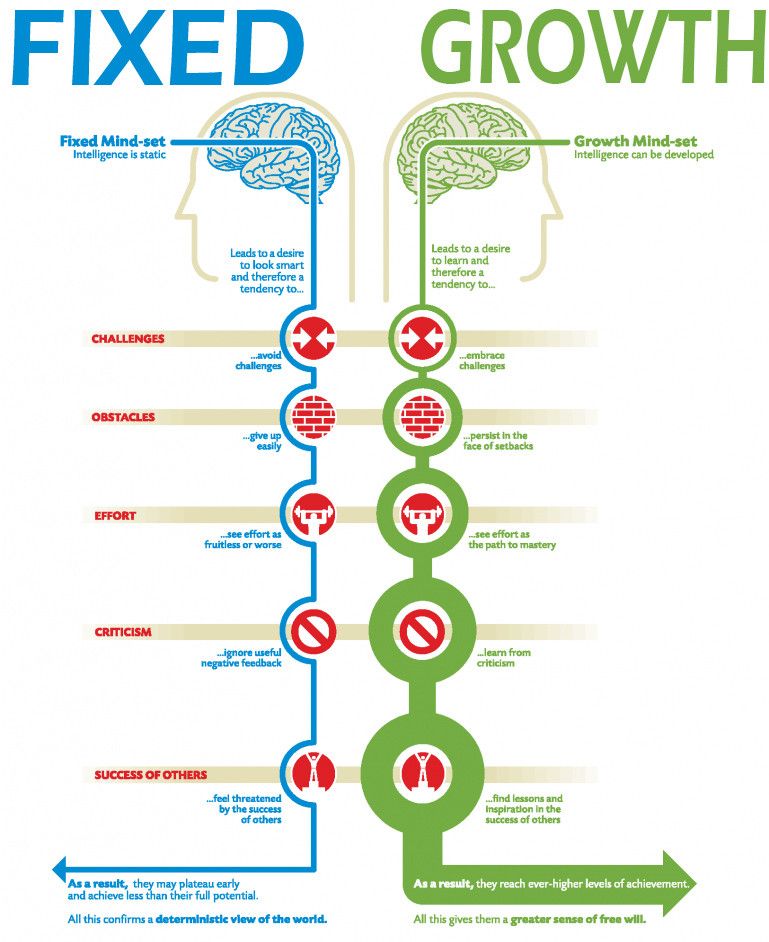Embrace the Growth Mindset
Each of us has a mindset that impacts our view of challenges in life. One of these mindsets embraces each challenge; the other avoids them at all costs. Which one do you have?

$156.60.
That's how much my 8-year-old daughter made in the last week. She sits at a table in front of our house selling toys, stuffed animals, scrunchies (that she sewed herself), and roses from our yard. She's out in the hot sun with a smile on her face, waving at every person who drives by. She is determined. She is focused.
Why is she selling stuff? She wants her own smartwatch. My wife and I told her we'd talk about her getting one if she could earn the $200 to purchase the model she wants. That conversation happened 7 days ago.
Rather than coming up with excuses or saying it would be too hard, she set out to raise the money. She took the challenge on with determination and is focused on her goal.
My daughter has a Growth Mindset.
What is a Growth Mindset?
The Growth Mindset is the perception that one can achieve bigger things than they have in the past. It's a shift in a person's perspective where hard things are a challenge that can be overcome, not an impossible obstacle. Carol Dweck, Stanford University Professor of Psychology, defines the Growth Mindset as "the belief that you can cultivate and improve upon your abilities through practice and effort.”
The opposite is the Fixed Mindset. A person with this perception assumes that their character, intelligence, and creative ability are set. They don't have agency to improve their abilities and they avoid failure at all costs to maintain the perception of being smart or skilled. They have a fragile perception of themselves.
Here is an outline of the differences:

Why is a Growth Mindset Important?
When you adopt a Growth Mindset, you see the world full of possibilities.
When you have a Growth Mindset, you don't see failing as failure; you see it as an opportunity to learn and grow. You welcome change. You thrive on challenges. You look at the possibilities instead of the limitations. Even though you are nervous to try new things, you don't let it stop you.
With the Fixed Mindset, failing means you are a failure. Possibilities are limited and challenges are to be avoided. You don't try new things for fear of failing.
The evidence of the impact of each mindset was seen firsthand in a study of 400 students Dweck conducted. Students were given an easy IQ test and at the end were praised in one of two ways:
- Intelligence: "Great job! You must be really smart at this."
- Effort: "Great job! You must have worked really hard at this."
This subtle difference in how they were praised had an interesting impact.
Students who were praised for their intelligence decided to take on easier tests later on in the study. They also became frustrated and gave up earlier if the task was perceived to be too hard. This is the Fixed Mindset.
On the flip side, students who were praised for their effort decided to take on harder tasks and tests as the study progressed. They would work harder, stick with it longer, and enjoyed the process of learning. This is the Growth Mindset.
Which mindset sounds like the one you want to embrace?
4 Steps to Develop a Growth Mindset
Can someone change their mindset? If you have a Growth Mindset, the answer is: yes.
Here are 4 steps to developing a Growth Mindset from Dweck's research:
- Hear your Fixed Mindset “voice”
When you have a challenge in front of you, listen to how you respond to the challenge. The Fixed Mindset will tell you it's a bad idea and you need to avoid failure or making a mistake. - Realize that you have a choice
You have the choice to listen to the Fixed Mindset or embrace Growth. Always remember you have full autonomy over how you interpret your setbacks and the challenges in front of you. When you encounter a setback, you can choose to see it as a failure or as an opportunity to grow and improve. - Respond with your Growth Mindset "voice"
Once you recognize you have a choice, make the decision to respond with the Growth Mindset. - Follow through with the Growth Mindset.
Put actions behind your Growth Mindset. Don't be disgruntled with setbacks - see them as opportunities. Dedicate yourself to growth.
Developing a Growth Mindset is not something that happens overnight or is a one-time decision. It's a way of thinking about yourself and the world that takes time to develop.
The goal isn't to achieve perfection. The goal is to consistently make progress towards growth.
Enjoy Your Growth
As you make the decision to choose your Growth Mindset, enjoy the journey. Recognize that failing and making mistakes are part of learning. On the journey to growth, there are always new opportunities.
If you're like my daughter, there are even rewards. I am very proud of her for her perspective in life. I am working to adopt the Growth Mindset myself. I am striving to always focus on growth and enjoy the journey.
Now if you'll excuse me, I need to go look at smartwatches for my daughter.

